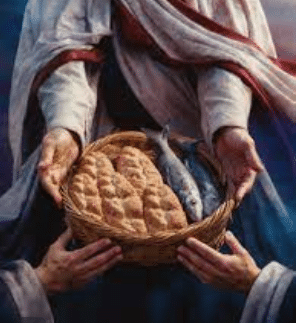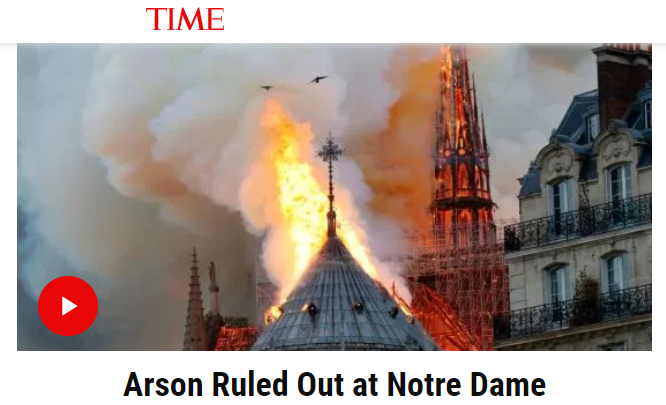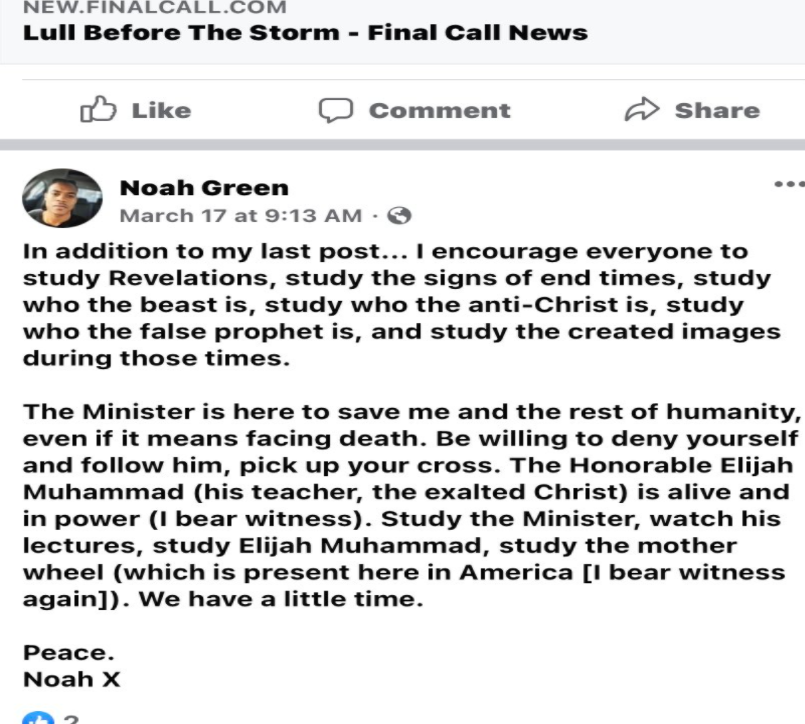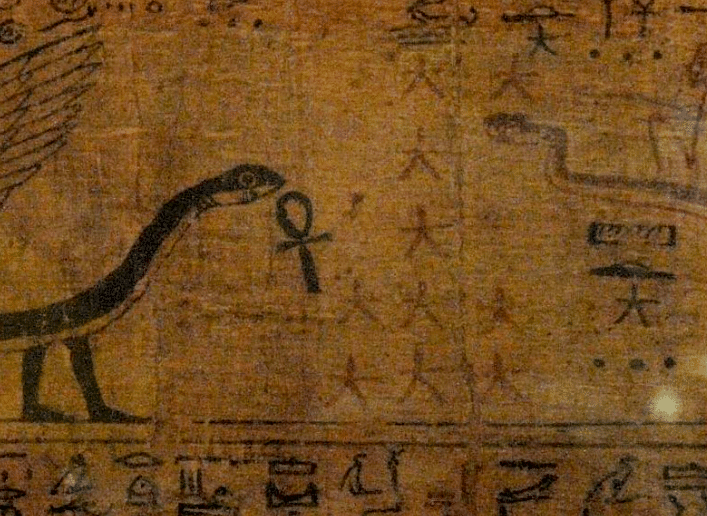and no ‘John the Baptist beheaded’ but ‘Aaron sanctified at Atonement’ foreshadowing the sealing of the 144 [explaining the 12-day theme] , [part II] : no ‘2 breads & 5 fishes’ but a 12-day Atonement for 12 tribes after which the 144,000 are sealed [Part III] : the star & sceptre and the ‘three days’ – see Jn.6 page [version 2025-10oct.28-29] |
|
content : … this is rather incredible — until now we didn’t attempt this corrupt story since there was no proper ‘key’ to unlock it for these inventions can be ánything really , but more and more the ‘2 breads & 5 fishes’ seemed to introduce part III that we just did about “the three days of star & sceptre” so that it was a continuing theme in which the twelve days must precede the three ! and get this , part I “John’s beheading” was never that : |

|
it was not “the head of – John – the Baptist” but “the forehead of – Aaron – the priest” !
since not “John – was holy” but “Aaron – was sanctified” !
because not “John – was killed” but “the remnant – died” !
so that not “the maid – wanted – his head” but “the angels – seal – the forehead” !
in fact ,
this is the perfect intro for part II , the alleged ‘two – breads’ Esau drivel that was “twelve – days” !
and the alleged ‘five – fishes’ was “(12 days-) for the twelve – tribes” ,
while
part III (-see other page) “explains the three days of sealing (here) by the Star & Sceptre theme” :
this must be one of the most complete — and important right now — chapters of NT …
theme
… having started out this part II with a huge knot in the tummy (neverending , that)
because several themes could be projected upon this corrupted nonsense
especially “the 7 & 49th year” which is part of ‘the restored Scroll’ one ,
where a phrase here could have been “lawless – people” as part of that sáme theme ;
but more and more it looked like this ‘twelve days’ one ,
and a massive confirmation of that is her embedding between part I and III
what really is infuriating is Esau’s tragical nonsense-sections
where he has Christ & disciples & people doing nothing else as “coming and going”
then “eating and drinking” then “embarking a ship to depart somewhere else”
as a neverending soul-less , tragically Superficial and aimless set of haphazard events
without ány Depth and as an endlessly boring narrative , leaving the reader behind in
confusion asking WTF was the real message here behind all that smoke & mirrors ?
where ,
his huge amount of useless verbs as ‘departing & arriving’ works terribly Frustrating
after finding an important close-root yet being unable to see “what happens next ?” ,
and though this is true for áll of the corrupted scroll the impact is double at important
themes like this one right now ,
where you & we are asked to restore a totally messed-up Fall feast calendar
while we cannot even find in the texts IF it was messed-up and if yes then how .. ?
with this in mind please goto Part II (click) ,
and see if you would (want to-) confirm please the buildup and also the ‘plot turns’
at each line to verify the text content after each change that Esau must have seen ;
because after describing “Esau’s corruption of the dates” 34 opens with you & we
that will find the correct dates but as “the untraceable ones” , then stressing how
because He will nót return at the expected time they will search agáin
(and this is an often reoccurring theme – that “the sons search the Scroll again”) ,
followed by “their understanding of the 12 days sanctification of Aaron”
here the logic of the buildup is crucial — the reasoning is the most important
factor deciding whether the restored content can indeed be as what was intended ;
and considering the extreme lengthy explanation ,
starting with ‘Aaron’ then about “Esau having read that — and changing it” ,
then “the 12 days for 12 tribes” closing with “explaining the three days” (in part III)
we must conclude how He said here that these days have been corrupted ,
wherefore you please carry the full impact of that with us
the 12-day Atonement as an event in Heaven
… because likely not much ‘happens to us’ during those days —
it is completely imaginable that each day “12,000 sons & daughters of a tribe”
are being declared by God to be part of the sealed ones , and not because the
calling of their names ‘would take time’ (well it does) but in this official appointing
Christ will ‘testify that the named person is admissable’ as we saw in the chapter
where He says “that he will testify concerning that person” ,
even though the text suggested that was happening ‘during the sealing’
but because of the twelve day-Atonement this makes much more sense , right ;
so that we may assume – and hope – that this is going on right now —
yes ,
ofcourse we can be wrong and this event is ‘only scheduled next year’ ,
we have no way of knowing except that we were asked to find the twelve days ,
and since we DID we need to wait what will happen , please
Mark 6 (full page) but overlapping with John 6
PART I
spoiler : this section confirms the restored text as part II so that’s good ; )
part I exists of two Esau-stories (and is very mixed) [in both Mk.6 & Lk.9]
first please ,
in order for Him to explain about “the corrupted 12-day theme” later on in part II ,
He must have told the disciples the ‘sanctification of Aaron’ : as a theme that Esau
turned into ‘the great commission of the apostles’ and ‘John Baptist beheaded’ ,
yet both of his stories have problems :
both lack a solid buildup while aspects are swapped (see table below) so that a text
restoration seems impossible and the max we can do is ‘recognize quotes’ in them ;
so that we need ,
— a reference to ‘the day of Atonement’
— and one to “the soul become humble” [that will be ‘dying’ of the 144]
— and one to “being sanctified” , [same]
— then “Aaron the high priest dressed” [promise of ‘the Original’ for the 144]
— and “receiving a sign on the forehead” [that will be ‘the seal’ of the 144]
— the “12 days waiting at the Tabernacle entry” ;
here ,
you see how “being dressed” is also an aspect of the alleged ‘great commission’
that even has “two and two” remniscent of the ‘two fishes & five breads’ corrupted
theme in part II , supporting the chance that indeed this section was the intro ;
[sub :]
however ,
we still have a problem with “the three days after that” ,
while we don’t know if those were explained in this specific (chapter-) narrative
since that might distract from the to-be explained ‘corrupted 12 days’ theme ,
does that make sense please ? and looking at the remained text here it neither
seems to show references to those three days so that we continue with the above ;
we’re still looking in OT ‘what happened áfter that 12th day’ that Aaron had to wait
[in ‘the great commission’ :]
#1 ‘wait at the door’
as the first recognizable phrase in both chapters ,
[Mk.6:9-10:]
“But [be] shod with sandals ; and not put on two coats. And he said unto them ,
In what place soever ye enter into an house, there abide till ye depart from that place.”
here ,
line 10 is hilariously Void and you can see that Esau used an original phrase
but didn’t know how to properly end it , as one important for us because
‘and he (God) said=commanded them=him (Aaron)
to go to the there=entry of the house=Tabernacle (‘close’!)
to abide there and [=not] depart from there’ ,
where Esau swapped the time ,
so that the “two=twelve (!) coats=days” should follow here ;
#2 the priestly garment
this part is very maimed — though at its right place befóre ‘the waiting’ ! ,
where after line 9 (above) showing the materials “sandals” and “tunic” this has :
[Mk.6:8:]
“And commanded them that they should take nothing for [their] journey ,
save a staff only; no scrip, no bread, no money in [their] [=girdle] :”
while we need
girdle [shows] , tunic [shows] [though moved] , and other attributes that were
part of the high-priest garment like ‘the breastplate’ (thôrax) and ‘a headdress’
perhaps added with descriptions as ‘fine linen’ ;
#3 anointing (the forehead with-) oil
also at its right place ,
[Mk.6:13:]
“And they cast out many devils, and anointed with oil many that were sick, and healed [them] .”
here ,
because of the common roots ‘forehead’ (metôpon) could be any word
and the same with ‘finger’ (daktylos) for to anoint the forehead with that oil ;
the Esau that doctored Luke 9 left this out completely but now – just as Mk.6 –
started another theme and you can feel how they both looked at the original [change :]
text and pondering what to make of “anointing + the forehead” followed by
the explanation “as foreshadowing + of the sealing + of the 12 tribes” ,
then coming up with their “John + the Baptist + beheaded” … !
[in ‘John the Baptist beheaded’ :]
… this section is even less clear : the Esau that did Luke 9 left but three lines
as virtually having deleted the “sealing of the 12 tribes” to be done with that ,
while the Esau of Mark 6 here overdid his narrative using the key phrases in
a now completely messed up story so that no full quotes are recognizable ;
in (14) ,
“John the Baptist risen from the dead”
likely was “the sons (‘you & we’) of Ishral rise up from among their people”,
but any restored Scroll theme is completely erased ;
what we need next is “that also the remnant (144) become to be because
(19) has ,
“ensnare” and “kill”
which must be ‘dying to the flesh’ , with as result
(20) ,
“John […] a just man and holy”
as ‘the John=remnant of righteous man=souls that will be sanctified’ ;
for in (21) ,
“when comes to pass the day of the good-time [..] as the birthday”
can only be ‘Atonement’ – and the same word ‘good-time’ shows in part II !
and though ‘good-time’ can have been an exuse for ‘atonement’ per the
roots (eukairos=katallagê) the use of that rare word also here is telling ;
but then it gets tricky :
perhaps the “dancing daughter” section explained why the people (Jacob)
will not be sealed because “they do what they want” (22) and would be
saying ‘our King (Christ) has saved us thefore we will not see tribulation’
as the line we often had both in OT and NT ;
perhaps , to finish this sub-story-line ,
in (26) ,
“being sorrowful” and “the oath”
is about the tribulation – when tired Jacob ‘will swear allegiance to IEUE’
and also will be saved , perhaps closing with ‘the restored Eden paradise’ ,
because now the sons of Esau are introduced :
[start of part II]
[line 29 : Esau corrupts this narrative & timeline :]
starting with (29-30) ,
“And when his disciples heard [of it] , they came and took up his corpse ,
and laid it in a tomb . And the apostles gathered themselves together unto Jesus ,
and told him all things, both what they had done, and what they had taught.”
as
[=but] (when-) the disciples=sons of his=Esau had heard=read [-this] ,
which must be followed by ‘their devious plan’ ,
where the ‘tomb’ in 29 can be “(God’s-) scroll” (mnémeion=biblion) ,
his corpse=words and=which [=he] place=spoke in [..] the tomb=scroll ;
but then we have a problem —
in line 31 (restored text below) they already “misplace the Fall feasts dates”
yet how could they come to that idea ? what was the reasoning for that method ?
here the weird line 28 as if added to previous ‘beheading’ section may help ,
(28)
“And brought his head in a charger ,
and gave it to the damsel: and the damsel gave it to her mother.”
what is this non-action ?
it sounds like “they could not hinder God but cóuld hinder the sons of Ishral”
because of the type interaction between parties , and ‘hindering the latter’
indeed could consist of ‘changing their (Fall-) feasts’ ,
though it’s impossible to see where “feasts” could have appeared here —
so let’s continue :
both Mk.6 and Lk.9 have a similar buildup ,
Mark 6 Luke 9 John 6
– ‘commission of the apostles’ – same
– ‘John the Baptist beheaded’ – same (but short)
– ‘the desert place’ (part II below) – same – same (chapter start)
PART II
the 12 day-Atonement for the 12 tribes
[start : Esau corrupts the Fall feast dates :]
Mk.6
31
“And he said unto them, Come ye yourselves apart into a desert place, and rest a while:
for there were many coming and going, and they had no leisure so much as to eat.”
31
and – he=they (‘Esau sons’) said – (to-) them [+selves] : [Esau speaking :]
b
[+we] (will) come here=distribute (?) (Deute=Diadidômi , used in John section below)
c
same=his (Gods) – (holy-) you=days (?) (Humeis=Hêmera)
d
according to – ourselves + [e-f : this combi will reappear :]
e
[=across] – desert=lawless (‘unlawful’) (erémos=anomos) – [..] places (‘positions’) ,
f
and – rest=conceal (?) (anapauó=parakalyptô) – [+their] few=content (?) (oloGos=praGma) ,
[next :
virtually impossible because of the common (infuriatingly simple) verbs :]
g
because – (the-) many=years (?) (polus=etos) – [..] (will) be – coming – and – [..] going
h
and – no [+one] – (will) understand – (the) well + time = good + times ; [eu + kairos , invented verb]
Mk.6
32
“And they departed into a desert place by ship privately.”
32
and=for – they (will) went=keep (?) (aperchomai=phylassô) +
b
[..] (the) desert=unlawful – place=times (topos=kairos , because of 31-h) +
c
according to (‘swapped’?) – their own – ship=scroll (plo-ion=bibl-ion) ; [‘KJV’]
Mk.6
33
“And the people saw them departing, and many knew him, and ran afoot thither out of all cities,
and outwent them, and came together unto him.”
33
and – [+he] (will) see=hold – [..] [+his] people – depart=guilty (hupagó=hypodikos)
b
(for-) and=not – knowing – his (‘swapped’?) – many=appointed times (?) (polus=prothesmia) ,
c
[here we give up – what can be (peze) ‘foot’ ? or (trechó / dramon) ? :]
–
[… impossible , but something Negative as “and they won’t care” …]
d
and=so that [+they] (will) together be come=judged (?) – unto=by – him ;
[next 34 :
by coincidence showed that ‘compassionate’ (splagchnizomai)
looks very similar to ‘cannot be traced’ (anaxichniastos) ,
though the intent of the line is tricky :]
Mk.6
34
“And Jesus, when he came out, saw much people, and was moved with compassion toward them,
because they were as sheep not having a shepherd: and he began to teach them many things.”
34
and – [+Jesus] came=says [+to them] (‘disciples’) : [because /end of Esau section]
b
(but-) the – jesus=sons (‘you & we’) (iésous=yhios) +
c
(will) perceive – (in-) (the-) vast=scroll (?) (polun=biblion , as shown) +
d
[..] (the-) compassionated=untraceable (adj.) – throng=dates (‘times’) (ochlos=kairos) +
e
[..] – of them (‘of the ‘appointed days’ in previous line 34 ?) ,
e
[what is next ? what can ‘sheep’ be ? :]
–
because – they (will) be – [..] sheep=advancing (?) (word ‘sheep’ -probation from -probainó) (?)
f
and – not – have=fear (?) – (this-) shepherd=evil matter (?) (poimén=adikêma) (Rev.18:5) ;
[new line :]
g
[=for] – he=they (will) begin – to teach=understand – them – many=rightly (?) , [continued :]
Mk.6
35
(a) “And when the day was now far spent, his disciples came unto him ,
(b) and said, This is a desert place, and now the time [is] farpassed :”
35
and=when – now=again (?) – (the) hour=time (‘date’) – (will) much=not – (have) come to pass
b
(in which-) [+they] came=waited – (for-) him=me – to disciples=gather – him=them , [< expression]
c
(and-) [+they] (will) say :
d
(the-) that=days (Hoti=Hêmera) – are – (in an-) desert=unlawful – place , [d-e : as line 31 :]
e
and – already=even – [+their] hour=contents (hora=pragma) (?) – (are) much=wrong (?) ; +
Mk.6
36
“Send them away, that they may go into the country round about, and into the villages,
and buy themselves bread: for they have nothing to eat.”
36
(therefore-) [+we] (should) dismiss – them , [c : juxta of ‘lawless – places’ !]
b
because – [+they] (were) go=put – [=as] – surrounding + [b-c : sic !]
c
and=their – villages=rightful (kômas=dikaios as show) – field=places ! (agros=topos) ,
d
(as-) (having been) buy=changed (agorazó=allassô) +
e
(by-) (the) themselves=sons (heautos=yhios) of – bread=Esau (artos=esau) ,
f
ANY for THEY-MAY-BE-EATING NOT THEY-ARE-HAVING << can be anything
now it gets difficult :
for the question is ‘where we start’ : what was “200 – denarii – of bread” ?
why is that slightly different as the other ‘five & two’ etc ? because óf ,
or do we need ‘a startingday in the seventh month’ (but the 14th or 15th ?) FIRST ?
(yes because it said “surrounding the place”) ,
where John 6 has at this point “And the passover, a feast of the Jews, was nigh.”
which is important because we would need a reference – but we’ve the same problem :
‘and – [+they] (will) was=remember
the festival of – jews=Unleavened (ioudaios=azymos) – near=after – Passover” (?)
then the date starts ‘the 15th’ ,
but for the same reason it can have said “LIKE at Passover” ,
and we don’t know if this Esau just deleted that line here or that he hid ‘Passover’
in his ‘to eat’ (PH-CH and PH-G) ;
Mk.6
[37 : again that cursed ‘give them – to eat’ and that twice plús the ‘going’ :]
37
“He answered and said unto them, Give ye them to eat. And they say unto him, Shall we go and buy
(b) two hundred pennyworth of bread, [< only this]
(c) and give them to eat ?”
[Jn.6:7:]
“Philip answered him, Two hundred pennyworth of bread is not sufficient for them,
that everyone of them may take a little.”
37
[…. impossible ….]
b
(the-) twohundred=fifteenth (?) (Dia-Kosioi=DeKa-pente) + [but ’14’ : deka-tesseres ..]
c
of (the-) bread=seventh (artos=hebdomos) – denarii=month (dEN-arion=mÊN) (?)
d
[…. impossible ….]
Jn.6
9
“There is a lad here, which hath five barley loaves, and two small fishes :
but what are they among so many ?”
[Mk.6:38:]
“He saith unto them, How many loaves have ye ? go and see. [9 : the sons still speak :]
And when they knew , they say, Five, and two fishes.”
9
[+but] is=following (?) – (the-) lad=appointed time (paidarion=prothesmia)
b
(as-) the one=first (?) – here=day (?) (hóde=hêmera) , [Esau’s ‘one’ was ‘first’ ?]
b
[+we] have – who=need + [‘need we-are-having’]
c
(for-) five=twelve – breads=days of – barley=Atonement (krithinos=katallagê)
d
and=for – (the-) two=twelve (‘close’) – provisions=tribes (opsarion=phylê) ,
e
but=because of – what – happened – [..1x..] – in – many=olden time (?) ;
Jn.6
[10 : can be 12,000 or 144,000 & repeated ‘sit down’ is ‘sanctified’ ?
b) why is the ‘green – grass’ (or ‘much – grass’ in Mk.6) -chortos so important for Esau ?
(but what was the word ? -chronos ‘time’ ? -archaios ‘of old time’ ? just a 2-Tier ?)
10
“And Jesus said, Make the men sit down. Now there was much grass in the place.
So the men sat down, in number about five-thousand.”
10
[=for] – [+they] (will) said=understand
b
(that-) the=when – jesus=God – make=sanctified – [..] humans=Aaron , [‘in part I’]
c
[+he] (had) to lean back=wait (ana-piptó=ana-menô)
d
[runs on , no new line ? :]
–
was=afterwards (?) – yet=for – much=twelve (?) – grass=days [‘no match but 2-tier’]
e
in=at – the – place=door (?) (topos=thyra) + [or ‘entrance’ topos=eisodos ?]
f
[+of the tabernacle (but deleted by Esau) ?] ;
g
[not to make an excuse but this may have been very garbled , Mk.6 has ‘they-lean-back plot plot’]
–
then=and – (in) the – about=same – number of – men=days
g
(the-) five=hundred [+forty four] thousand
h
(will be) lean back=sanctified (anapiptó=hagiazô , taken from context of John 6 section) ;
here ,
the “Aaron commanded to wait 7 [=12] days at the Tabernacle entry” is a crucial aspect
because he was ordered “not to GO from there” – implying how after that he wóuld ,
and surely He knew that Esau had not tampered (but ‘the days’) thát specific event ;
Jn.6
11
“And Jesus took the loaves; and when he had given thanks, he distributed (‘see top’) to the disciples,
and the disciples to them that were set down; and likewise of the fishes as much as they would.”
[Mk.6:41:]
“And when he had taken the five loaves and the two fishes, he looked up to heaven ,
and blessed, and brake the loaves, and gave [them] to his disciples to set before them ;
and the two fishes divided he among them all.”
here ,
someone ‘is blessed’ – the 144 , while we use Mark for it has numbers ,
in John it intended the previous ‘lay back’ (not ‘set down’) which was ‘sanctified’
41
and – (it will) taken=happen +
b
(from) the – five=first – bread=day – and=until – the – two=twelfth (‘close’) – fish=day (?)
c
(that) [..] heaven=God (ouranos=theos) – (will) look=accept (?) – into=them [‘he-shall-accept them God’]
d
(and-) bless [+them] (Haggai 2 & others) ,
e
John has the strange word ‘oPSArion’ (‘provision’ said as ‘small fishes’)
as cover-up (but not a good one) for ‘trumpets’ (-SA-lPigx) ?
b)
same word appears in John 21 the alleged ‘153 fish story’ that must be the same as this one ,
– instead of ‘200 – denarii’ here it has there ‘200 – cubits’ ,
– in 14 “this – appear=day – third – he appears – Jesus” , sic ; not ‘already the third time appeared’
– while not ‘the disciples couldn’t catch fish’ but ‘couldn’t find the right dates’ , perhaps ;
–
[….. second half of line escapes us , perhaps “their names mentioned in Heaven” ? …… ] ;
as “the two=twelve – fishes=tribes – he parts=names – (them-) all” (?)
Jn.6 [Mk.6:42]
12
“When they were filled, he said unto his disciples ,
Gather up the fragments that remain, that nothing be lost.”
12
[…. unknown — ‘sun goes dark’ / ‘Trumpets’ ? …..]
Jn.6
13
“Therefore they gathered [them] together, and filled twelve baskets with the fragments of the
five barley loaves, which remained over and above unto them that had eaten.”
13
…
b
(will be) filled=sealing (GemiZÓ=sphraGiZÔ) – (the-) twelve – baskets=tribes (kophinos=phylê)
c
of fragments=Ishral (?) (klasma) [or ‘from Trumpets’ ?]
d
out=until (?) – (the-) five=third – breads=day (?) – [=as] (?) barley=Booths (?) (krithinos=skênos)
e
which=when – [… 2x unknown …]
here ,
in 1 Cor.15 also appears “12” and “3 days” together ;
Jn.6
[14 : this looks very much like the last line in Ez.33 the infamous ‘watchman’ chapter
which appears to be “about the days of the Fall feasts”
having “and they will know that a prophet had been among them” — but intent unclear here :
14
“Then those men, when they had seen the miracle that Jesus did, said,
This is of a truth that prophet that should come into the world.”
PART III
‘the three days of star & sceptre’ see John 6 page



























